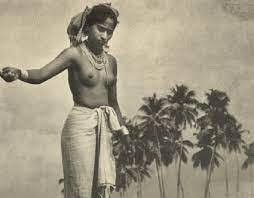Whose Happily Ever After?
This week we read about Rachel Alicia Griffin’s (2015) article about the representations of Black women (specifically the figures of mammy and the jezebel) in the TV show Scandal. The representations of women are shown as the two extremes: one of them being the all-loving, caring, and self-sacrificial; and the other being the ‘witchy’, villain-like, seductive qualities.
This reminds me of the kind of representations of women I grew up with while watching Indian soap operas and Bollywood films from the 90s. Immediately, two specific representations come to mind: “the good housewife” and “bad outsider woman”. There has always been a divide between a "good housewife" who is shown to be traditional, quiet, and shy - through her attire and mannerisms. She follows what her husband says and serving the family is the focus of her life.
On the other hand, there is "an outsider woman" who's shown to be seductive, modernised, independent, and rebelling against traditional values. The fact that she is the complete “opposite” of the “good housewife” is shown as the exciting factor which attracts the man because the man gets bored of going back to the boring, all-giving “good housewife” every day. The man’s excuse/reason is usually that the “good housewife” does not have any time for exciting things, she’s always so focused on familial and household values. (Well, if the “good housewife” did not have the burden to take care of the whole family on her head, wouldn’t she have the time to actually have more fun and be excited?)
In most of the film/show plots, the man feels attracted to the “outside woman” and takes the housewife for granted the whole time. As the story develops and climaxes, the man is shown to realize the value of love and care and abandons the “outside woman” because she’s “bad after all” and then he goes back to the “good housewife”. And they live happily ever after. (Or, is it just a happy ending for the man?)
Within these binaries, there is no focus on exploring the inner world of these women. They are always shown in relation to the man. The man is the protagonist who “juggles” these women. As I watched these shows, my 13-year-old brain formed strong opinions about “these kinds of women”.
Any pretty woman in a bar, wearing revealing clothes is a bad girl. This is not the kind of woman ultimately liked by men. So, let me try to not be that.
So, I try to “imitate” the “good housewife” characteristics in my behaviors instead.
I talk less, I talk lightly, and I don’t question men.
I automatically put myself down and see myself as less than men.
Well, I needed to fully devote myself to men.
But at the same time, at the age of around 16, I remember thinking how the “good housewife” is not exactly what young men feel attracted towards.
So, let me try to be the rebellious, bad, carefree “outside woman”.
How do I do that? I try to rebel against the things I genuinely enjoy. I try to be disrespectful. I show that I don't like my family. I say things that don’t align with my values, and I dress up as something I don’t want to.
Now I am 23. Why was I focusing on men the whole time? Why did I want man’s validation? Which man?
Where does this story go now?
Does it end happily?
I am not sure.






Comments
Post a Comment